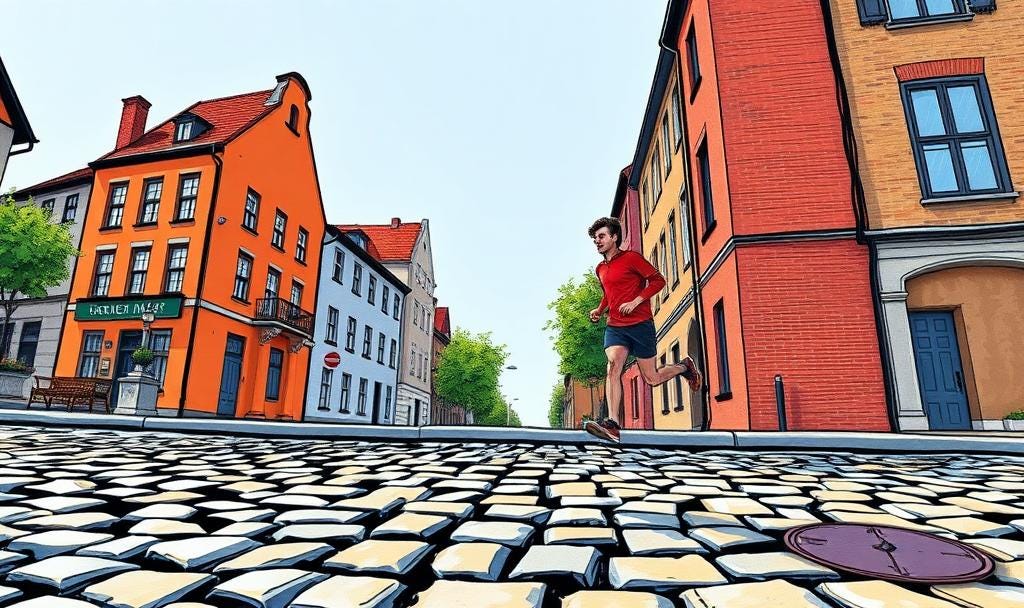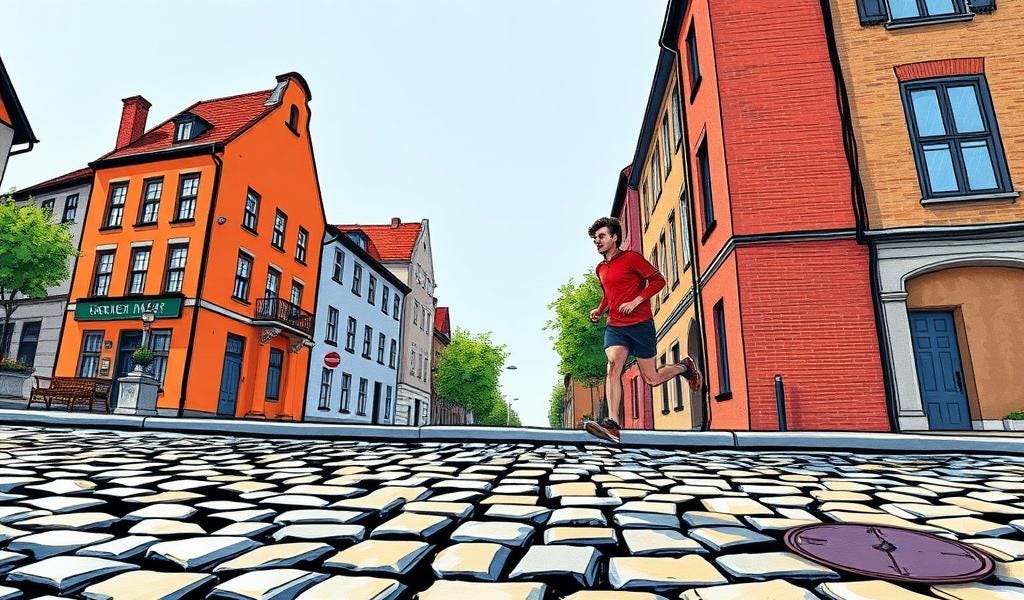The Way of the Cobblestone
Smooth makes things rough. Ease makes life more difficult. Soft makes us brittle.
We lost something when asphalt replaced cobblestone. Every step on those old, gnarled stones forced a man’s body to shift, recalibrate, and work. The more cobblestonish the surface, the more micro-exertions. The more asphaltish the surface, the fewer micro-exertions.

Our forebears didn’t need gyms or Fitbits. Their world was their workout. Every rutted road, every bend at the stream to wash clothes, every yank on the well rope was a cascade of micro-exertions that kept them hard and hale.
We, on the other hand, slump in ergonomic chairs, staring at screens, our bodies atrophying as we fetishize efficiency. Sure, we’ve got our CrossFit cults and marathon maniacs, pounding their bodies into submission. That’s fine, even necessary. Lift the weights, sprint the hills, sweat it out.
But it’s not enough.
The real grit lies in the small, constant movements of the day—the walk across a gravel lot while carrying your laptop, the deliberate choice to park at the far end of the Walmart parking lot. Sitting is the new smoking, they say, and every desk jockey who’s reading the newest studies on health is swapping his ergonomic chair for a standing desk.
The pre-moderns knew about the importance of micro-exertions, but they didn’t apply the wisdom to physical life (didn’t need to, given the ardor of everyday living).
They applied the wisdom to the soul. The old monks and mystics, with their “abandonment to divine providence” and “sacrament of the present moment,” understood that a healthy spiritual life demands constant, tiny acts of resistance and awareness. The neptic fathers, ever watchful, practiced a kind of spiritual cobblestone-walking: each moment a chance to recalibrate, to pick up the micro-crosses of patience, humility, and presence. The devout peasant woman, recognizing every whine as a micro-defeat, didn’t complain about her hard life.
We postmoderns are trying to wrangle back this lost cultural intuition by developing “mindfulness,” but the whole mindfulness movement—for all its goodness and potential—is merely working its way backwards to St. Paul’s Thessalonian “pray without ceasing.”
The Rosary, the liturgy, the quiet hours with scripture—these are the heavy lifts of the spirit, the HIIT sessions of the soul. But they’re not enough. You need the little crosses, too—St. Therese’s “Little Way,” embracing every irritation, every small sacrifice, as a chance to grow stronger. It’s not easy. It’s not supposed to be.
Smooth is the enemy.
Artificial Intelligence is the New Asphalt
And now, here comes the new asphalt: Artificial Intelligence. It’s paving over our minds the way blacktop smothered the cobblestones.
Can’t find the right word? Grok’ll spit it out. Forgot the name of that gizmo you meant to buy? Leo’s got you covered. Curious about the tangle of alliances that sparked the Great War? Claude’ll lay it out.
Every query answered, every effort spared.
And every time—every damned time—your brain misses a chance to stretch, to strain, to step over the uneven ground of thought. It’s a micro-exertion lost, a micro-defeat, a tiny cross left on the ground, a softening of the mind that compounds with every swipe and click.
Deep work, long reads, the grind of a crossword puzzle: these are the mental equivalents of deadlifts and sprints, of kneeled praying and liturgy. They’re essential.
But the mind, like the body, needs constant, small challenges to stay sharp. Pull the dictionary off the shelf and hunt for that word. Let the name of that product simmer in the back of your skull until it surfaces hours later, unbidden. Crack open that dusty history text and wrestle with the messy causes of 1914. Is it slower? Less efficient? Does it, in the moment, feel like a slog? Hell yes. But so does walking on cobblestone.
The smooth path weakens you. The rough one, over time, makes you strong.
Choose the cobblestones.
Link to Substack where this essay originally appeared:


